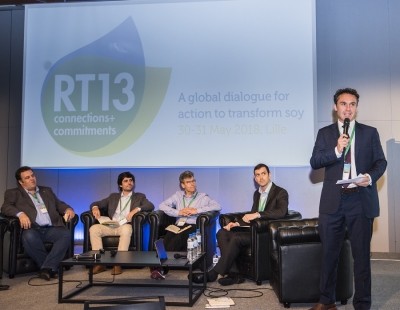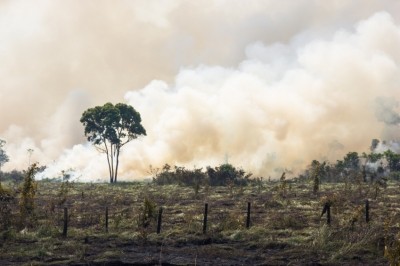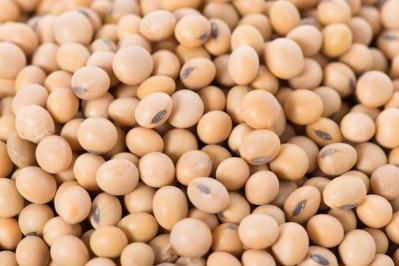WWF welcomes new policy
Investor action spurs Bunge to commit to zero deforestation in soy, corn and other commodities

The US agribusiness giant has pledged to eliminate deforestation from its agricultural supply chains worldwide, including soybeans, corn and sugar sourcing, following on from similar commitment on palm oil sourcing in 2014.
"Bunge has been engaged on the issue of reducing deforestation for nearly a decade, as a founding member of the Soy Moratorium in Brazil. Our new commitments are the next step in that journey and another way we will create more sustainable agricultural value chains. We look forward to working with partners and other organizations to develop practical and effective approaches that work at scale," a spokesperson for the company told us.
The trader said, starting immediately, it will inform grain and oilseed suppliers of its new promises and will encourage them to avoid deforestation and peat land clearance. It will begin developing action plans to operationalize these commitments in commodities other than palm oil, it added, with the aim of finalizing them by the end of 2016.
The New York headquartered group said it will also collaborate with stakeholders to develop and test methodologies and practical tools that support and enable forest protection.
“The timing of our efforts and the methodologies we apply may vary by region and commodity,” said Bunge.
Its pledges are similar to those in the zero deforestation palm oil and soy policy adopted by Archer Daniels Midland (ADM) four months ago
Leslie Samuelrich, president of Green Century Capital Management, an environmentally responsible mutual fund, said: “Bunge has listened to investors’ concerns in adopting strong environmental policies that protect the company and its shareholders while acting as a catalyst for more improvements in the industry.”
Last spring that fund filed a shareholder resolution calling on Bunge to adopt a policy to eliminate deforestation across all its supply chains, including soy, sugar, and corn.
WWF welcomes Bunge pledge
"The push by shareholders via Green Century has provided powerful leverage to help companies source more sustainable commodities," said Jean Timmers, soy lead at WWF International.
He told FeedNavigator the WWF welcomes the ‘no deforestation’ vows from Bunge and other traders of palm oil and soy, as such global traders play an immensely important role in the supply chain.
“Bunge's commitment, together with other prominent traders and retailers, opens the way for a global 'deforestation-free' commodities market and, consequently, a sharp reduction of global forest and biodiversity losses together with sustainable food supplies for future generations.
WWF is happy that Bunge's commitment on soy not only supports the successful Amazon Soy Moratorium, but also goes beyond it, as it will help protect other important habitats such as the Cerrado and the Chaco.
However, the commitment will be strengthened by clear time-bound action plans expected in 2016,” he said, adding that the WWF is happy to discuss with Bunge how to successfully implement its commitments.
The WWF plans to again “shed light” on major companies that use palm oil and soy through the publication of buyer scorecards in 2016, added Timmers.
ADM pledges
In May this year, ADM vowed to curb deforestation linked to soy and palm oil cultivation, also following engagement with Green Century.
Victoria Podesta, ADM's chief communications officer, said back then that its ‘no deforestation’ policy, would include the mapping of its supply chains against high carbon stock (HCS) forests, high conservation value (HCV) areas and peatlands, as well as the ‘expeditious development’ of action plans to create more sustainable production and sourcing of soy and palm oil for food and feed use.
ADM is partnering with The Forest Trust — a nonprofit group that helps companies reduce the impact of their supply chains on the environment — to map its supply chain and perform a risk assessment.
In June, Tim Venverloh, director of global sustainability at ADM, told this publication the company “anticipates that the mapping and risk assessment findings will allow focus on key areas of higher risk. The outcome of these efforts will dictate next steps. We will post frequent public updates as we proceed with the project.”
ADM is also roping in expert third party inspectors to conduct yearly assessments to determine if growers are adhering to a broad set of social, environmental, legal and agronomic standards.
Defining deforestation, according to Greenpeace, is complex, as it has to factor in carbon and climate, biodiversity and local community considerations.
That NGO backs the High Carbon Stock (HCS) approach, which, it said, identifies areas of land suitable for plantation development and forest areas that can be protected in the long term.











